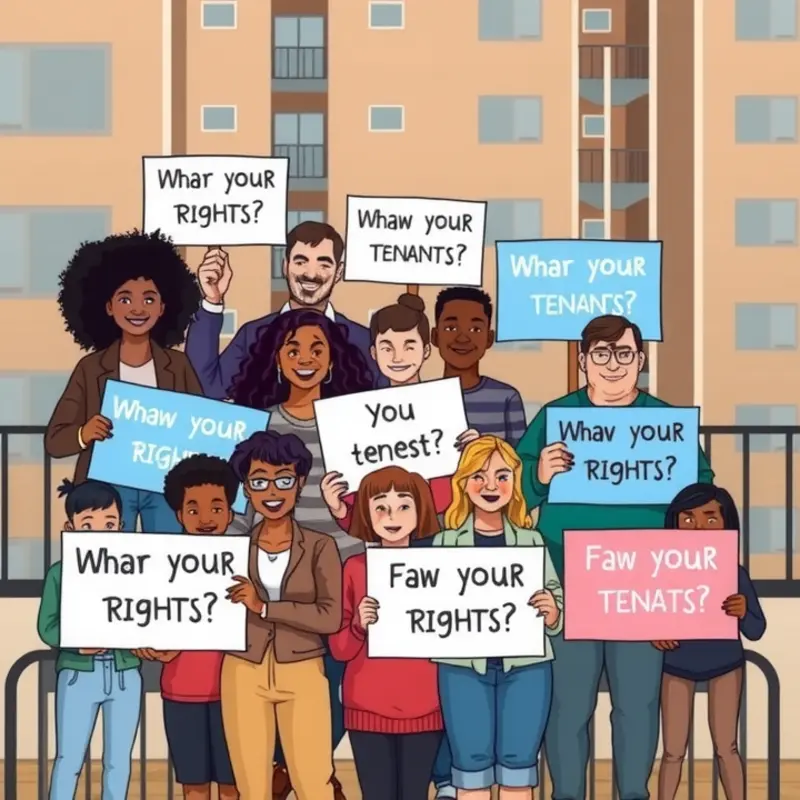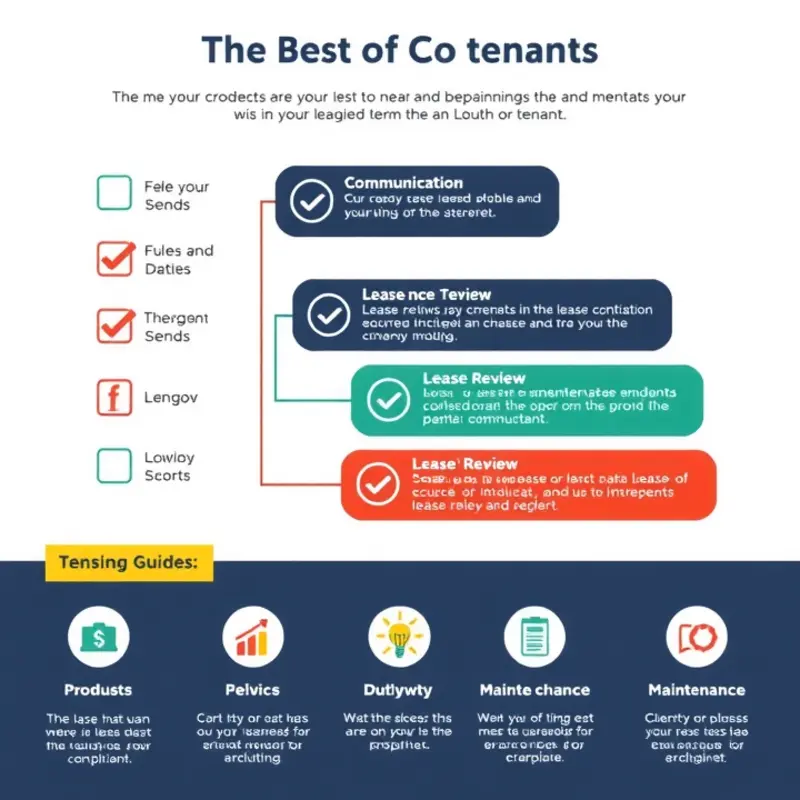Buying or selling a home can be a hectic process for landlords, but understanding your tenant rights during such times is crucial for everyone involved. For young professionals, first-time renters, students, couples, and families, lease agreements may feel overwhelming, especially when a property goes on the market. Knowing your rights helps safeguard your living situation as sales can often lead to uncertainty about lease conditions, your living arrangements, and potential evictions. Understanding aspects related to communication from landlords, termination notices, and your rights in situations of showing the property can significantly reduce stress. With the right knowledge, you can navigate the complexities of being a tenant during a property sale. Employing practical tips can empower you as you face potential changes and ensure you are well-versed in terms that could affect your payment and living situation, making your renting experience smoother and more secure.
Key Tenant Rights During Property Sales

Understanding your rights as a tenant during the sale of a property is crucial to ensure a smooth transition. One of the first things to be aware of is the requirement for notice. Landlords must typically provide a written notice before putting the property on the market. The timeframe for this notice can vary depending on your jurisdiction, so it’s essential to familiarize yourself with local landlord-tenant laws.
Another key right to be aware of is your ability to remain in the property throughout the sale period. A lease is a binding agreement, and in most cases, it remains valid even if the property changes ownership. This means that your terms and conditions should remain unchanged unless both parties agree to modifications. Be cautious of any attempts to prematurely terminate your lease without proper cause or legal grounds.
When it comes to showings and inspections, landlords usually have the right to access the property but must follow certain protocols. Generally, this involves providing reasonable notice, which is often defined as at least 24 hours in advance. The access should be during reasonable hours and not disrupt your day-to-day life.
Communication is another area that tenants should pay attention to. It’s important for tenants and landlords to maintain open lines of communication throughout the selling process. Discuss the best times for showings and express any concerns you might have. Being proactive can prevent misunderstandings and ensure your rights are upheld.
The legality of terminating or modifying lease conditions without mutual agreement often hinges on the specifics of your lease agreement. Some leases have a “sale clause” that might permit early termination under certain conditions. However, in the absence of such a clause, changes cannot be made arbitrarily. It’s essential to thoroughly read your lease and pinpoint any details related to the sale of the property.
In certain situations, tenants may also have the opportunity to purchase the property. Some jurisdictions offer tenant first right of refusal laws, allowing you to match any offer the owner receives. If this is applicable, it can be an empowering option for tenants wishing to secure long-term housing.
Understanding and asserting your rights is vital, but practical knowledge can also play a significant role. Ensuring your living space is well maintained can showcase it in the best light during showings, and having awareness of your local housing market provides you an edge in discussions with landlords. As part of your preparations, consider checking out apartment hunting negotiation tips to make informed decisions during this period.
Overall, being informed and aware of the specific rights you’re entitled to protects both your home and your peace of mind during a sale. Whether it is understanding notice requirements, preparing for property showings, or knowing your right to remain in your home, each aspect contributes to a smoother process as the property transitions to new ownership.
What Steps to Take When Your Home is Selling

Embarking on the journey when your rental property is up for sale can be daunting. It’s crucial to take actionable steps to protect your rights as a tenant effectively. Begin by reviewing your lease agreement closely. This document outlines your rights and obligations, serving as the base for what you can expect during this process.
Knowing the specifics of your lease empowers you to safeguard your interests. Are there clauses related to property sales? Make sure to check for any early termination or sale-specific terms that might affect your stay. If these are not clear, consulting with a legal advisor may prove helpful.
Communication stands as a vital tool in managing property sales. Engage with your landlord as soon as you receive notice of the sale. Open communication channels allow you to discuss expectations and understand potential timelines. Address any concerns about showing schedules and privacy issues during these interactions. Remember, your landlord typically needs to provide a proper notice before property showings, usually 24 to 48 hours in advance.
It’s also crucial to mentally prepare for potential changes. While the current landlord might reassure you that the lease duration remains protected, new ownership might offer different residency terms. Prepare by cataloging possible outcomes, from seamless transitions to early leases termination negotiations.
Negotiating your lease terms with prospective buyers—whether extending the existing lease or discussing early termination agreements—can sometimes optimize your situation. If lease terms are renegotiated, ensure they are documented in writing to avoid disputes later.
In scenarios where you might need to vacate, staying organized will ease the transition. Compile a checklist of tasks such as finding alternative housing and ensuring you receive any due security deposit. Be proactive by exploring similar living situations through resources like the Guide to Renting in Savannah, GA, which may offer insights into avoiding potential pitfalls.
Understanding the landlord’s obligations and your entitlements ensures not only legal protection but also emotional reassurance. Keep calm and organized to effectively navigate through the complexity of living in a property under sale. Equip yourself with knowledge and a strategic approach to uphold your rights during this transitional period.
Final words
Navigating the sale of a property can undoubtedly bring about uncertainties, especially for tenants. Understanding your rights is not just beneficial; it’s essential for maintaining your home stability and ensuring you are treated fairly. As you encounter situations regarding property showings or changes in leasing conditions, remember that being proactive and informed about your legal entitlements can make all the difference. By knowing when to seek advice and what to expect, you can confidently address concerns with your landlord or property manager. Keeping the lines of communication open will also help alleviate potential stress during any transitions that arise from a property sale. Your home is your sanctuary, and it’s important to protect it.









